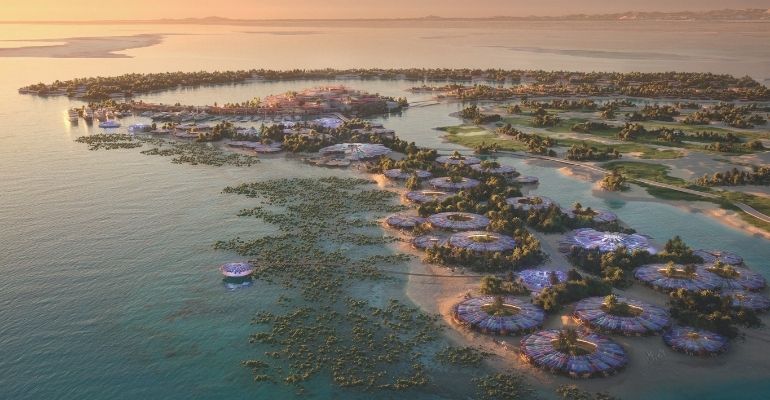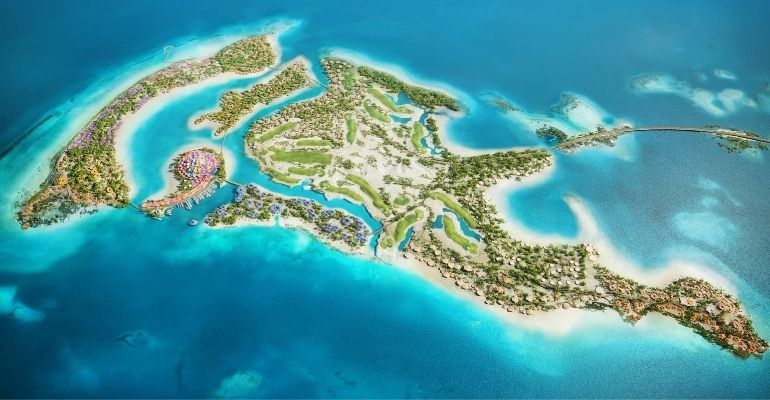With conservation and biodiversity taking centre stage, Coral Bloom on Shurayrah Island, The Red Sea Project has been touted as a sustainable tourism destination that is inspired by Saudi Arabia’s unique fauna and flora.
“Shurayrah Island is the gateway to The Red Sea Project so it’s important that it sets the standard in groundbreaking architecture and sustainable design, not just for our destination, but globally too. This is achieved by going beyond simply protecting the environment, to applying a regenerative approach,” according to the developer.
Featuring 11 hotels, the island’s natural landscape will ensure that all villas and hotels will be strategically nestled within its natural environment.

A GROWING DEMAND FOR SPACE
Shifting with the current climate, hotel designs have also been responsive to the changing world and traveller demands over the last 12 months. There will be no internal corridors for example, in response to a growing demand for space and seclusion following the COVID-19 pandemic. The resorts themselves will be created using lightweight materials with a low thermal mass and manufactured offsite, meaning more energy efficient construction and less impact on the environment.
THE EMPHASIS ON BIODIVERSITY
For the developer and the architects – Foster+ Partners – behind the project, biodiversity considerations take centre stage, with the plan designed to avoid disruption of the island’s mangroves and other habitats, providing natural defences from erosion, while new habitats are created through landscaping to enhance the island’s natural state. The design will also see new beaches created on the dolphin-shaped island along with a new lagoon. These enhancements will contribute to raising the level of the land, providing a defensive layer from the global threat of rising sea levels.
OPENING NEW AREAS OF ECONOMIC ACTIVITY
Coral Bloom is part of The Red Sea Development Project Upon completion in 2030, The Red Sea Project will comprise 50 resorts, offering up to 8,000 hotel rooms and around 1,300 residential properties across 22 islands and six inland sites.
As part of Saudi Arabia’s giga-projects announced by the government, The Red Sea Project will open new areas of economic activity, create jobs, cultivate entrepreneurial activity, and drive economic development in line with the objectives of Vision 2030.
By completion, the Red Sea Project will directly employ around 35,000 people and support an equivalent number of jobs in the wider community by creating opportunities for local businesses, entrepreneurs and supporting industries.

PROJECT FACTS:
- Architect: Foster+Partners
- Project developer: The Red Sea Development Company
- Project Location: West Coast, Saudi Arabia
- Completion date: 12/31/2022
SUSTAINABILITY AIMS:
The project will include the largest district cooling plant powered by renewable energy 24 hours a day to facilitate efficient centralized cooling across the destination. The entire destination will be powered by renewables, underpinned by the largest battery storage system in the world.
DRIVERS OF CHANGE: Top 20 most Influential Sustainable MENA Real Estate Professionals. You can nominate a peer, colleague, line report, or a key figure in real estate who is making significant strides towards the MENA region’s green transition here.

